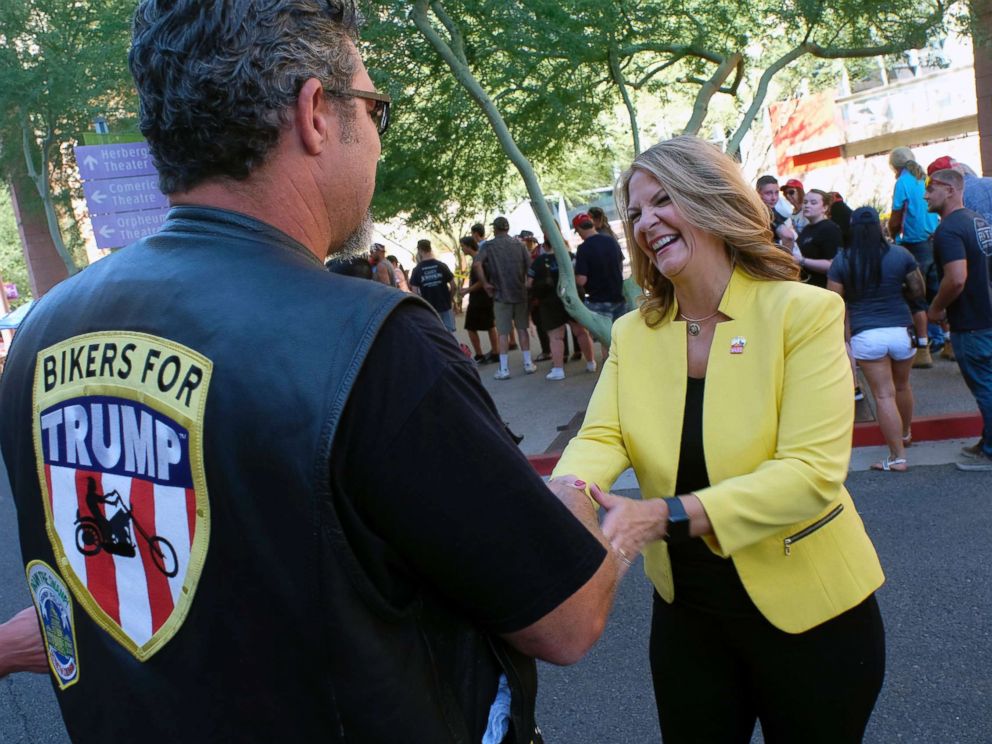What Jeff Flake's decision to quit will mean for Senate seat
The Arizona race is key to the balance of power in the U.S. Senate.
— -- The news that Republican Sen. Jeff Flake, a frequent critic of President Trump, has decided not to seek re-election in 2018 puts even more pressure on both parties to grab control of a seat that is crucial to the balance of power in the U.S. Senate.
The Arizona senator’s penchant for taking shots at the president made him one of the GOP’s most vulnerable incumbents in the 2018 midterms. Flake was already facing an upstart primary challenger from the right and would have likely taken on one of the Democrats’ top recruits in Rep. Kyrsten Sinema if he had won the GOP nomination.
As of today, former state Sen. Kelli Ward is the only major Republican candidate in the race, and has earned Trump’s praise for her willingness to embrace his agenda and attack Flake.
Ward, who also has the backing of former White House chief strategist Steve Bannon, is viewed as unelectable by many in the Republican establishment who are keenly aware that Arizona is key to keeping their 52-to-48 majority in the Senate alive.
Responding to the news, the Senate Leadership Fund, a super PAC established by supporters of Senate Majority Leader Mitch McConnell, R-Ky., released a statement bashing Ward.
“The one political upshot of Sen. Flake’s decision today is that Steve Bannon’s hand-picked candidate, conspiracy-theorist Kelli Ward, will not be the Republican nominee for this Senate seat in 2018," according to the statement.

It was also less than two weeks ago when McConnell himself emphasized that the GOP’s nomination of electable candidates is essential to maintaining its majority.
“My goal as the leader of the Republican Party in the Senate is to keep us in the majority. And the way you do that is not complicated,” McConnell said in the Rose Garden standing beside President Trump, “You have to nominate people who can actually win, because winners make policy and losers go home.”
The Flake announcement also sets off a fresh round of speculation on other potential Republican contenders for the seat.
Arizona State Treasurer Jeff DeWit, who worked on Trump’s presidential campaign, Rep. Martha McSally, Rep. David Schweikert and Arizona Republican Party Chairman Robert Graham are among the names mentioned as candidates with a broader appeal than Ward.
Ward also garnered criticism when she said that Arizona’s senior senator – John McCain – should step down from his seat “as soon as possible” after news that he had been diagnosed with brain cancer.

McCain, who was first elected to the Senate in 1986, has said he will remain in the Senate as long as he is healthy and able. But if McCain, 81, is unable to serve out the rest of his term through 2022, it would throw yet another wrench into Arizona’s already complicated political climate.
Democrats have been eyeing Arizona as a prime pickup opportunity in 2018, a state that Trump won by less than 4 points in 2016, and the fact that the race is now an open seat, elevates the need to win there.
Sinema’s entry into the race boosted national Democrat’s hopes of turning the seat blue, with the Democratic Senatorial Campaign Committee (DSCC) quickly endorsing her after she announced her run last month. The DSCC also looked to capitalize on the Flake news Tuesday.
"Senator Flake’s retirement is another example of the divisiveness roiling Republican primaries,” DSCC spokesman David Bergstein wrote in a statement. “These dynamics will continue to hinder Republican efforts in Arizona and whatever candidate succeeds in claiming their nomination will fall short of Kyrsten Sinema and her proven record of results for Arizona's working families."
But despite the optimism, Democrats face an undoubtedly tough road to win in a state that has not sent a Democrat to the U.S. Senate since 1988, then-incumbent Sen. Dennis DeConcini.